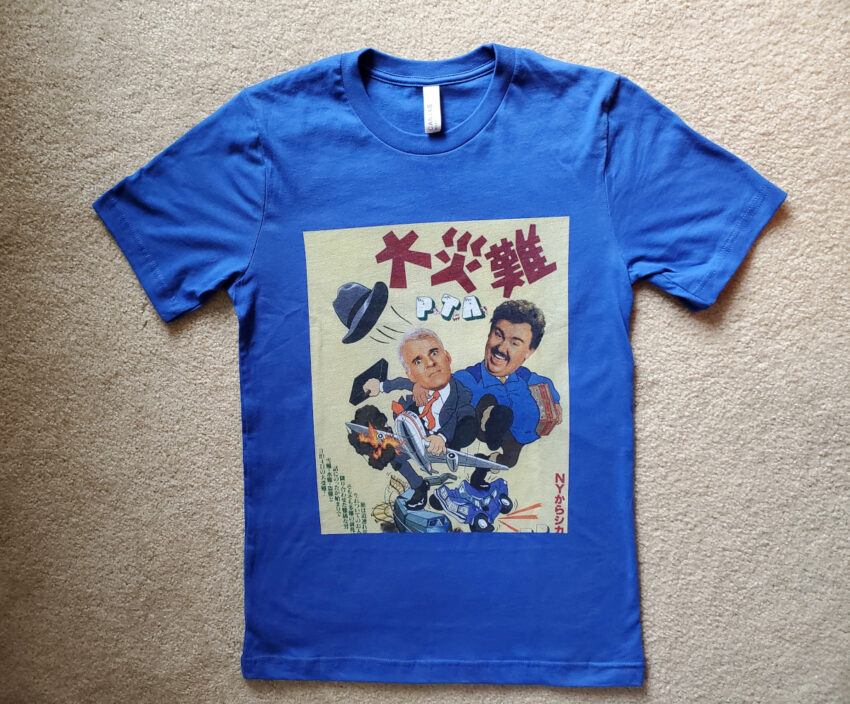 You’re jumping to conclusions about your slumping team member.
You’re jumping to conclusions about your slumping team member.
“But Doyle has been slacking off.”
Has Doyle always been an under-performer?
“No, he started slipping a month ago.”
Did you find out why he’s slipping?
“It doesn’t matter. The work isn’t getting done.”
How are you going to resolve the problem?
“Put Doyle on a performance improvement plan.”
His dog died.
“Are you serious?”
Maybe. Maybe Doyle’s elderly mother is sick. Maybe his wife just lost her job. Or maybe he just doesn’t care about his job anymore. You don’t know. Do you?
“Personal is personal. Work is work. If I can keep my work and personal life separate, so can Doyle.”
So many of us in leadership positions are driven and competitive. We’re always trying to achieve goals, moving forward towards success. Our competitive natures can become blinders, narrowing our minds and perspectives. In our drive to succeed, we may lose sight of values like empathy.
 One of my favorite classic holiday movies is Planes, Trains and Automobiles, a road trip comedy about the misadventures of two guys with two very different personalities. Neal is a rigid executive. Del is a bighearted salesman. Thrown together by a winter storm, Del sets out to help Neal return home in time for Thanksgiving dinner with his family. At the beginning of their journey, Neal hates Del. As they spend time together, Neal learns there’s more to Del than being an obnoxious travel mate. Del drops hints about himself along their journey, but Neal is too full of himself to connect the dots. At the end of the movie, Neal makes it home for Thanksgiving and finally realizes that Del is a lonely widower who’s going to spend his holiday all alone.
One of my favorite classic holiday movies is Planes, Trains and Automobiles, a road trip comedy about the misadventures of two guys with two very different personalities. Neal is a rigid executive. Del is a bighearted salesman. Thrown together by a winter storm, Del sets out to help Neal return home in time for Thanksgiving dinner with his family. At the beginning of their journey, Neal hates Del. As they spend time together, Neal learns there’s more to Del than being an obnoxious travel mate. Del drops hints about himself along their journey, but Neal is too full of himself to connect the dots. At the end of the movie, Neal makes it home for Thanksgiving and finally realizes that Del is a lonely widower who’s going to spend his holiday all alone.
Neal didn’t have empathy for Del. He displayed the behaviors of a person who lacks empathy: judgmental, selfish, explosive and critical. Not that Neal was a bad person. He redeemed himself in the end when he found Del and brought him home for Thanksgiving. Yet, because of his lack of empathy, he almost missed out on the opportunity to make a meaningful friendship.
“Kind of like me throwing Doyle under the bus.”
 You got it! Now that you’ve come to your own realization about an area of personal development where you need to improve, we’re going to bend the laws of time and space and take you back to the beginning of your working relationship with Doyle. You’re going to learn how to develop empathy for your team members.
You got it! Now that you’ve come to your own realization about an area of personal development where you need to improve, we’re going to bend the laws of time and space and take you back to the beginning of your working relationship with Doyle. You’re going to learn how to develop empathy for your team members.
“Great! I’m ready.”
Doyle just started on your team. After he’s been onboarded, what’s the first thing you’re gonna do?
“Put him to work?”
History repeats itself, except not this time! You’re going to start your engagement with Doyle by establishing 1:1 meetings with him.
“How is another meeting going to help me develop empathy?”
You need to build a connection with Doyle. The 1:1 meeting space serves several purposes, one of which is engagement with your team members. That involves building trust. In order to develop empathy for someone, you should be aware of what’s on the person’s mind. You can learn about someone during your 1:1 engagement. This is about seeing Doyle as a human being, not just another employee on the payroll. Because the latter perspective is not cool.
“But I signed up to be a manager, not a therapist!”
 Relax. Developing empathy isn’t that complicated. During your 1:1 meeting space, listen to Doyle. When Doyle tells you that he’s struggling to solve some problem, instead of judging him, make an attempt to see the problem from his perspective. Ask him questions about his challenges. As the dialogue continues, you’ll expand your new empathy powers by asking Doyle how you can help him to overcome his challenges. Be prepared to deliver on your offer of help. That’s one of the keys to building a trust relationship with him.
Relax. Developing empathy isn’t that complicated. During your 1:1 meeting space, listen to Doyle. When Doyle tells you that he’s struggling to solve some problem, instead of judging him, make an attempt to see the problem from his perspective. Ask him questions about his challenges. As the dialogue continues, you’ll expand your new empathy powers by asking Doyle how you can help him to overcome his challenges. Be prepared to deliver on your offer of help. That’s one of the keys to building a trust relationship with him.
Now that you’re building a trust relationship with Doyle, you’ll be in a better position to support him if his performance slips in the future. During subsequent 1:1 meetings, you should be able to pick up on any concerning changes in his behavior. And because you’ve developed a trust relationship with him, Doyle should show a willingness to open up to you. That openness can lead to insights on the source of his performance issues. He may mention a personal problem. Or he may admit to job dissatisfaction. Regardless of his reasons, he’s going to provide you with some insight into the cause of his performance issues. Instead of giving up on him, you’ll be able to support him, helping him to get back on track with his performance.
You don’t have to take a plane, train or automobile to reach your destination as an empathetic leader. For this journey, just make sure you wear the other person’s shoes.
